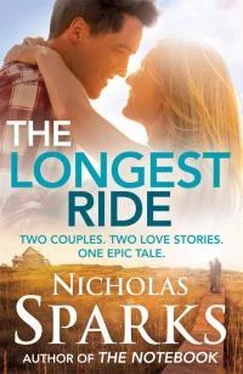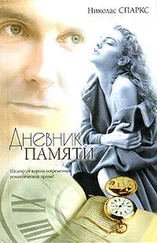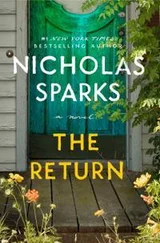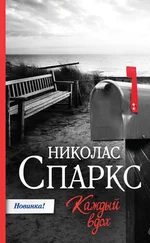The fever finally broke as the calendar turned to November. When I opened my eyes, I didn’t know where I was. I couldn’t remember what had happened, and I couldn’t seem to move. I felt as though I’d been buried alive, and with all my strength, I was able to whisper only a single syllable.
Ruth.
The sun grows brighter and the winds have grown sharper, yet still no one comes. The terror I felt earlier has finally passed, and in its absence, my mind begins to wander. I note that being buried alive in a car by snowfall is not unique to me. Not too long ago on the Weather Channel, I saw a clip about a man in Sweden who, like me, was trapped in his car while snow gradually buried him alive. This was near a town called Umeå, near the Arctic Circle, where temperatures were well below zero. However, according to the broadcaster, the car became an igloo of sorts. Even though this man would not have survived long if exposed to the elements, the temperature inside the car could be tolerated for long periods, especially since the man was dressed appropriately and had a sleeping bag with him. But this is not the amazing part; what was amazing was how long the man survived. Though the man had no food or water and ate only handfuls of snow, the doctors said his body went almost into a sort of hibernation state. His bodily processes slowed down enough for him to be rescued after sixty-four days.
Good God, I remember thinking. Sixty-four days. When I saw the segment, I could barely imagine such a thing, but obviously it has taken on new meaning at the present time. Two months in the car, for me, would mean that someone would find me in early April. The azaleas will be blooming, the snow long since gone, and days will already begin to feel like summer. If I’m rescued in April, it will probably be by young people wearing hiking shorts and sunscreen.
Someone will find me before then, of this I’m sure. But even though it should make me feel better, it doesn’t. Nor am I comforted by the fact that the temperature is nowhere near as cold or that I have two sandwiches in the car, because I am not the Swedish man. He was forty-four and uninjured; my arm and collarbone are broken, I’ve lost a lot of blood, and I’m ninety-one years old. I’m afraid that any movement at all will cause me to pass out, and frankly, my body has been in hibernation mode for the past ten years. If my bodily processes slow any further, I’ll be permanently horizontal.
If there is a silver lining in any of this, it’s that I’m not hungry yet. This is common for people my age. I haven’t had much of an appetite in recent years, and I struggle to consume a cup of coffee and single piece of toast in the morning. But I am thirsty. My throat feels as though it has been clawed with nails, but I don’t know what to do. Though there is a bottle of water in the car, I am afraid of the torture I will feel if I try to find it.
And I am cold, so cold. I have not endured this kind of shivering since my stay in the hospital a lifetime ago. After my surgeries, after the fever broke and I thought my body was beginning to heal, a fierce headache set in and the glands in my throat began to swell. The fever came back, and I felt a throbbing soreness in the place where no man wants to feel it. At first, the doctors were hopeful that the second fever was related to the first. But it wasn’t. The man next to me had the same set of symptoms, and within days, three more in our ward became ill. It was mumps, a childhood disease, but in adults it’s far more serious. Of all the men, I was hardest hit. I was the weakest and the virus raged through my body for almost three weeks. By the time it ran its course, I weighed only 115 pounds and I was so weak that I couldn’t stand without help.
It was another month before I was finally released from the hospital, but I was not cleared to fly. My weight was still too low, and I had no crew to speak of. Bud Ramsey, I learned, had been shot down over Germany, and there were no survivors. Initially, the army air corps wasn’t sure what to do with me, but they eventually decided to send me back to Santa Ana. I became a trainer for new recruits, working with them until the war finally came to an end. I received my discharge in January 1946, and after taking a train to Chicago to pay my respects to Joe Torrey’s family, I returned to North Carolina.
Like veterans everywhere, I wanted to put the war behind me. But I couldn’t. I was angry and bitter, and I hated what I had become. Aside from the night over Schweinfurt, I had few combat memories, yet the war stayed with me. For the rest of my life, I carried wounds that no man could see but were impossible to leave behind. Joe Torrey and Bud Ramsey were the best kind of men, yet they had died while I had survived, and the guilt never quite left me. The flak that tore through my body made it a struggle to walk on cold winter mornings, and my stomach has never been the same. I can’t drink milk or eat spicy food, and I was never able to regain all the weight I lost. I have not been in an airplane since 1945, and I found it impossible to sit through movies that dealt with war. I do not like hospitals. For me, after all, the war – and my time in the hospital – had changed everything.
“You are crying,” Ruth says to me.
In another place, at another time, I would wipe the tears from my face with the back of my hand. But here and now, the task seems impossible.
“I didn’t realize it,” I say.
“You often cried in your sleep,” Ruth says to me. “When we were first married. I would hear you at night and the sound would break my heart. I would rub your back and hush you and sometimes you would roll over and become silent. But other times, it would continue through the night, and in the mornings, you would tell me that you could not remember the reason.”
“Sometimes I didn’t.”
She stares at me. “But sometimes you did,” she finishes.
I squint at her, thinking her form is almost like liquid, as if I’m staring at her through shimmering heat waves that rise from the asphalt in summer. She wears a navy dress and a white hair band, and her voice sounds older. It takes a moment, but I realize she is twenty-three, her age when I returned from the war.
“I was thinking about Joe Torrey,” I said.
“Your friend” – she nods – “the one who ate five hot dogs in San Francisco. The one who bought you your first beer.”
I never told her about the cigarettes, for I know she would have disapproved. Ruth always hated their smell. It is a lie of omission, but I long ago convinced myself that it was the right thing to do. “Yes,” I say.
The morning light surrounds Ruth in a halo.
“I wish I could have met him,” she says.
“You would have liked him.”
Ruth clears her throat, considering this, before turning away. She faces the snow-caked window, her thoughts her own. This car, I think, has become my tomb.
“You were also thinking about the hospital,” she murmurs.
When I nod, she emits a weary sigh.
“Did you not hear what I told you?” she says, turning to me again. “That it did not matter to me? I would not lie to you about this.”
“Not on purpose,” I answer. “But I think that maybe, you sometimes lied to yourself.”
She is surprised by my words, if only because I have never spoken so directly on this matter. But I know I am right.
“This is why you stopped writing me,” she observes. “After you had been sent back to California, your letters became less frequent until they finally stopped coming at all. I did not hear from you for six months.”
“I stopped writing because I remembered what you’d told me.”
“Because you wanted to end it between us.” There is an undercurrent of anger in her voice, and I can’t meet her eyes.
Читать дальше











![Николас Спаркс - Каждый вдох [litres]](/books/414723/nikolas-sparks-kazhdyj-vdoh-litres-thumb.webp)
